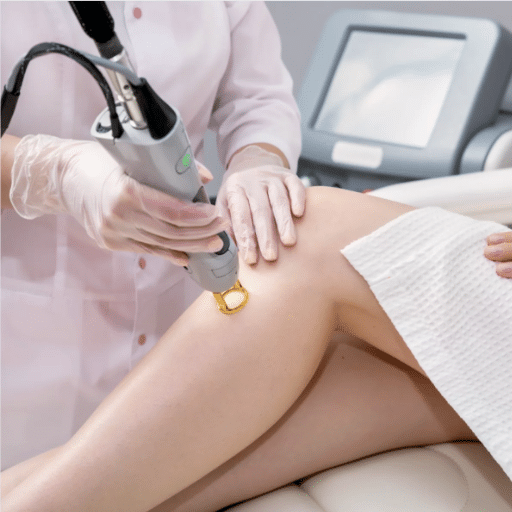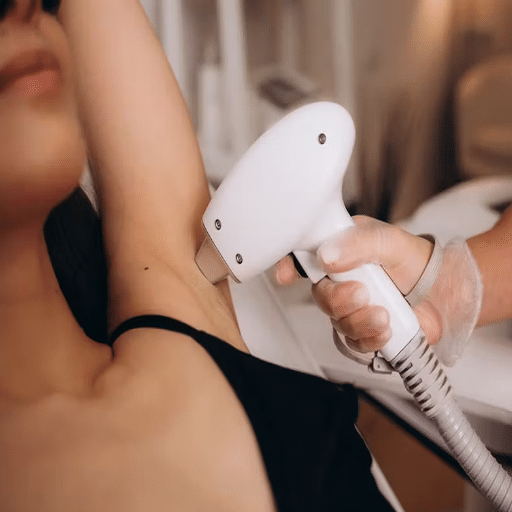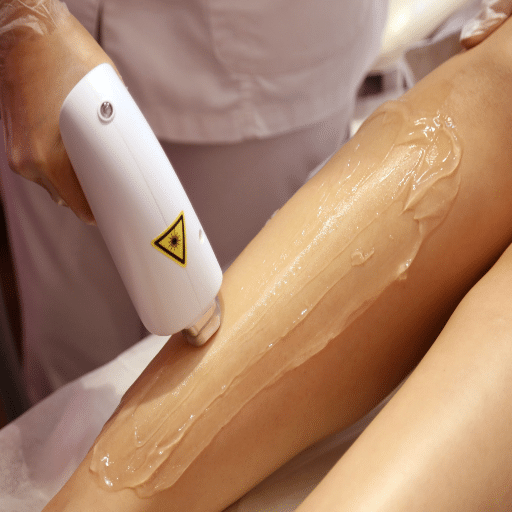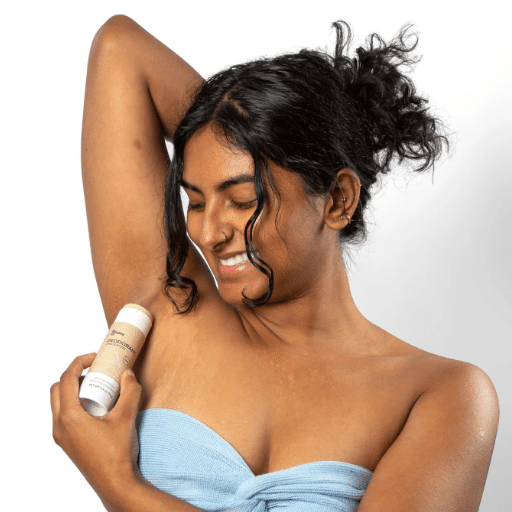Physical Address
304 North Cardinal St.
Dorchester Center, MA 02124
Physical Address
304 North Cardinal St.
Dorchester Center, MA 02124

Your Complete Guide to Protecting Sensitive Skin While Staying Fresh
Laser hair removal is a procedure that will make your skin smooth and fresh, but aftercare will still be the most important thing, especially in the case of something as normal as picking the right deodorant. Your skin’s being treated so delicately that you will have to avoid several mainstream deodorants and might even have to deal with irritation or pain. This article is going to assist you in the process of selecting the most appropriate deodorant for the most delicate skin after laser treatment and for the most sensitive skin. From learning what skin-unfriendly ingredients to keep away from to finding out calming and skin-friendly alternatives, we are right here along with you. So go through this article to make sure your skin does not lose its care while you have the daily confidence and freshness feeling!

Laser hair removal is a cosmetic treatment that uses a focused beam of light to destroy hair follicles, thereby inhibiting or totally stopping hair growth in the area of treatment. The process is effective on many body parts and works best on people with dark hair and light skin, but modern technology has made it possible to use the procedure on a wider range of skin types. It usually needs several visits to the clinic for the best outcome because of the hair growth cycle and the fact that only the actively growing hair is targeted. When done by experienced professionals, it is a safe and permanent method with little downtime needed.
Laser hair removal is a cosmetic treatment that utilizes light beams of high intensity (lasers) to get rid of hair that is not wanted. The laser is aimed at the pigment (melanin) present in the hair roots, which causes them to get damaged and thereby stop or slow down the growth of hair in the future. It is primarily applied to the legs, armpits, face, bikini area, and back. During the procedure, hair growth is considerably less, but the treatment may not lead to permanent removal, hence the need for regular maintenance sessions. Due to the technical breakthroughs, laser hair removal has become effective for all skin and hair types; however, the results will differ among individuals. The risk of complications is very low with professional practice by licensed personnel, and the process itself is nearly pain-free.
Laser hair removal works by using light energy that is concentrated to target the pigment (melanin) in the hair follicles. The application of the laser causes heat to be produced, which leads to the destruction of the hair follicle, thus preventing future growth. The process mostly affects the hair, while no significant damage is done to the skin around it. Still, some temporary side effects like redness, swelling, or mild irritation may occur, which are similar to the feeling of a mild sunburn. The effects are usually gone in a few hours to a couple of days. The modern technology in laser hair removal has made it possible to treat people with different skin types, but those with darker skin and lighter hair may need special lasers to get the best results. It is very important to adhere to the pre-and post-treatment care guidelines, such as staying out of the sun, in order to protect the skin and improve the effectiveness of the procedure.
Laser hair removal is widely considered to be a safe procedure, yet it can still cause some side effects, just like any other cosmetic treatment. The most frequent side effect of laser hair removal is skin irritation, which includes redness, swelling, and mild discomfort at the site of the treatment. Usually, these symptoms go away in a few hours to a day. Some people may experience minor crusting or scabbing on the treated area, which should be taken care of gently so that infection does not occur. Another possible side effect is skin discoloration, during which the treated area may become temporarily darker hyperpigmentation or lighter hypopigmentation. These changes are more frequent in people with darker skin tones or after sun exposure, which necessitates skin protection before and after treatment.
In the case of blistering and burns, these occurrences are rare when the procedure is done by a doctor using suitable equipment. Recent research has found that complications can be lowered to as little as 1% when laser hair removal is carried out under strict medical supervision and following safety measures. In addition, it is important to remember that developments in laser technology, such as Nd: YAG or diode lasers, aim to reduce the risk and enhance the effectiveness for various skin and hair types. It is very important to have a thorough consultation with a certified expert to assess the individual’s suitability and to minimize the chances of side effects.

Selecting the most suitable deodorant is crucial for keeping up with personal cleanliness and comfort all day long. A good product will control odor from bacteria, perspire if sweating is the case by including antiperspirant properties, and also, it will prevent possible irritation of the skin. Picking deodorants with gentle, skin-friendly ingredients can help you steer clear of allergic reactions or rashes, particularly if you have sensitive skin. Moreover, if you use a deodorant that matches your lifestyle and needs, whether it be long-lasting protection or natural, chemical-free options, this will make you feel fresh and self-confident. Factors such as skin sensitivity, fragrance preferences, and activity levels should always be taken into account when you are making your choice.
Deodorants can affect sensitive skin, mainly due to the components like fragrances, alcohol, and specific chemical substances that can trigger irritation or cause allergic reactions. When selecting a deodorant for sensitive skin, it is very crucial to stay away from detergents made with synthetic scents and aluminum-derived compounds, as these are widely regarded as irritants. Lessening the risk of skin problems can be achieved by using hypoallergenic deodorants that are made with natural ingredients such as coconut oil, shea butter, or aloe vera. Moreover, the use of alcohol-free products helps to alleviate the drying and stinging sensations that might accompany sensitive skin. Do a patch test before using a new product to make sure it is compatible with your skin type.
Irritating ingredients are often found in regular deodorants and, in some cases, may even result in skin reactions. The most common irritants are:
✅ Good to Know: Through knowledge of these ingredients and opting for natural or dermatologist-recommended alternatives, individuals can easily minimize the chance of irritation and put skin health first.
Applying deodorant post-laser hair removal can be a way to keep the area fresh and bearable during sensitivity that might occur. The skin of the treated region may become more sensitive than normal. However, modern deodorants usually contain skin-friendly, calming, and healing ingredients that can lessen the irritation and support the healing process of the skin. They can also include moisturizers that can keep the skin hydrated and fight dryness, which is a common problem after laser hair removal. Choosing a deodorant that has no harsh chemicals, fragrances, or alcohol is still a must, as these may cause more irritation and hinder recovery. The combination of good post-treatment care and the right deodorants can help the skin stay healthy and free of irritation during the recovery period. It is also necessary to check with your beautician or skin doctor for the best product options that will suit your skin type.

It is best to choose a gentle, unscented deodorant that contains sensitive skin treatments for laser hair removal. You can consider the following products:
It does not have any fragrances, dyes, or alcohol, and it is perfect for calming and guarding the skin that has been treated.
A gentle, aluminum-free formula that works to reduce irritation.
It is created using natural ingredients and does not contain any harsh chemicals or scents.
💡 Important Reminder: Always carry out a patch test with new products before application, and also go ahead to ask your technician or dermatologist for special recommendations that match your skin type.
The number one skincare products that could work well for sensitive skin are the ones that contain gentle and non-irritating components. Here are the key recommendations based on expert opinions:
Non-irritating and hypoallergenic products, as well as conducting patch tests with new products, are the most effective ways to take care of sensitive skin. If further guidance is needed, a dermatologist should be contacted to ascertain the correct type of skincare for your skin.
When talking about the best deodorant formulations, ingredients, efficacy, and the different needs of people should be the main focuses. The following list includes some top deodorant options that have been specifically made to maximize control over odor and, at the same time, cater to individual preferences:
These are perfect for people wanting natural substitutes or for those having sensitive skin. Baking soda, magnesium, or activated charcoal tackle the odor very effectively. For instance, Native Deodorant is the one that the market has really accepted because of its mild formula, along with coconut oil and shea butter for extra skin nourishment.
These formulations are for persons with severe sweating (hyperhidrosis) and use higher amounts of active ingredients such as aluminum chloride or aluminum zirconium, thereby Certain Dri and Secret Clinical Strength providing durable protection. These preparations establish a protective wall that not only lowers sweat flow but also body odor.
Comprising environmentally friendly components, these attract the attention of users who are looking for green options. Brands like Schmidt’s and Tom’s of Maine are combining with nature and leading the way in offering plant-based ingredients such as essential oils and arrowroot powder. These deodorants are free of synthetic scents, parabens, and phthalates, yet still, a long-lasting and fresh feeling is assured.
Both aerosol and mist deodorants are a flexible choice since they are easy to carry for personal use and also for those who like quick-drying formulas. NIVEA Dry Comfort Spray and Dove Dry Spray not only give excellent protection against perspiration but also are especially suitable for very active lifestyles, as they leave no residue on skin or clothing.
These products, which combine antiperspirant and deodorant, offer both odor and sweat protection and hence are a versatile option. Degree MotionSense and Gillette Clinical Clear Gel are some of the common products that use the latest sweat-blocking technology and provide 24 to 48 hours of protection.
🔍 Expert Advice: Always take into account your personal preferences, skin sensitivities, and the exact conditions you want to deal with when choosing a deodorant. If you are not sure, consult a dermatologist to advise you on the best option according to your needs.
Choosing between natural and synthetic deodorants gets easier once you know the differences and get to weigh the pros and cons. Natural deodorants do not carry synthetic chemicals like aluminum, parabens, or artificial fragrances. They neutralize odors in a natural way by using baking soda, arrowroot powder, and essential oils. Moreover, they are gentler and thus more suitable for sensitive skin and are highly regarded by eco-conscious consumers. On the downside, they might need to be reapplied more times since they do not block the evaporation of sweat.
In contrast, synthetic deodorants and antiperspirants utilize modern technology and advanced formulations, the use of aluminum compounds to reduce sweating, hence providing long-lasting odor protection. These are also highly effective in controlling moisture and odor, thus best suited for very sweaty people. Although these are widely applied, there still exists a fraction that will not use them because of potential sensitivity issues or negative environmental impacts.
To sum up, the decision between natural and synthetic deodorants is a matter of personal priorities, such as sensitive skin, lifestyle, and the need for effectiveness. It might be wise to experiment with various alternatives to determine which one is the best fit for your body, considering the fact that different people react differently to various substances.

For deodorant to work optimally, do not forget to put it on clean and dry skin. The most appropriate time for application is immediately after bathing, when the skin is new and there are no sweat or oil deposits. If you are going to apply antiperspirant, applying it at night may increase its effectiveness because the sweat glands are inactive during sleep. Apply the product by swiping or spraying evenly on the underarm area, making sure that it is completely covered, but without over-application. If you have heavy perspiration or smell, reapply it as needed throughout the day. Always follow the specific directions given on the product label for best results.
The period after laser hair removal marks the right moment for the application of deodorant to be conscientiously made, the specific care being mandatory in this respect. Usually, deodorant application should be refrained from for a period of time between 24 and 48 hours after the treatment, as the skin in the area that has been treated might be sensitive, red, or slightly swollen. If you apply deodorant too soon, it can cause burning or stinging. Rather, keep the area clean and dry and gently wash it with lukewarm water and a mild fragrance-free cleanser.
When the time for deodorant reapplication has come, choose a product that does not contain alcohol, fragrances, or harsh chemicals to be sure that there will be no skin irritation. These days, natural or hypoallergenic deodorants are frequently suggested. Apart from that, make sure that your skin is calm and that there are no irritation issues before the deodorant application. If you feel any uneasiness, it would be best to ask your doctor about the post-treatment care in detail.
When you can safely reapply deodorant depends on the treatment that you had done and how quickly your skin recovers. In most cases, it is good to wait for 24-48 hours after procedures like waxing or laser hair removal to let the skin heal. It might be good for people with really sensitive skin to wait even longer, say, 72 hours.
The skin feeling calm, not red, and no sensitivity or irritation are all signs that it is time to put on deodorant again. Just make sure to stick with the specific aftercare instructions given by your practitioner for optimal results.
To less irritation, make sure that your skin has been properly cleaned and moisturized thoroughly. After the treatments of hair removal, do not wear tight clothes and do not engage in activities that make you sweat a lot, for these can make the sensitivity worse. The area can be calmed down by applying a soothing moisturizer or aloe vera, and also, using fragrance-free products will minimize the likelihood of irritation occurring. Cooling compresses can be used to relieve redness and discomfort. Don’t let the treated part of the skin get sun exposure, and always apply sunscreen to the skin to protect it while it is healing. If the sensitivity does not go away, please speak to your doctor for personalized advice and product suggestions.

Post-laser hair removal, it is advisable to steer clear of deodorants that have alcohol, fragrances, or strong chemicals, as these may add to the irritation in the area treated. Likewise, strong antiperspirant products containing aluminum compounds should be avoided, too. The right choice will be made if gentle, fragrance-free deodorants are used, or you may ask your practitioner for particular product suggestions. Keep in mind that the very soothing and non-irritating options should always be given priority as they will effectively protect and assist the body’s healing process.
In the post-laser hair removal skin care process, one of the most important things is to look closely at the ingredients of the skin care products. Among the main components to keep away from are alcohol, which can dry out skin and irritate the skin, and synthetic fragrances that lead to an allergy or even skin sensitivity. Besides, you should not use strong exfoliators like glycolic acid, salicylic acid, or retinol, as these might increase skin irritation and slow down the healing process.
Rather, use soothing and hydrating products with such ingredients as aloe vera, chamomile, or ceramides, which are very effective in calming inflammation and supporting the skin barrier. Never forget to check labels meticulously and to get your practitioner’s opinion for personalized recommendations.
Amongst the various factors influencing my choice of deodorants, one of the major missteps I have come across is the neglect of the ingredients list. The use of strong chemical-based products like parabens or synthetic fragrances might lead to skin irritation or even allergies for some people, especially those with delicate skin. The other blunder involves picking a deodorant just for its scent, ignoring its potency or skin type compatibility. It is important to weigh the options with mild, natural substances and to try out those that are claimed for my use, just to be doubly sure.
Deodorants can sometimes irritate, and the most common signs are underarm area redness, itchiness, swelling, or rash. Contact dermatitis is one of the most probable reasons for these symptoms, often caused by allergens or harsh ingredients in the product, such as synthetic fragrances, alcohol, or parabens. Burning sensation and dry, flaky skin can also be common signs that a certain deodorant does not fit your skin type. It might be helpful to switch to a hypoallergenic deodorant that has soft and natural ingredients and to stay away from those with irritants. If the symptoms go on, it is best to see a dermatologist to rule out skin sensitivities or allergies.
Choosing the right deodorant after laser hair removal is essential for maintaining skin health and comfort during the healing process. By avoiding harsh ingredients like alcohol, fragrances, and aluminum compounds, and opting for gentle, hypoallergenic alternatives, you can protect your sensitive skin while staying fresh. Remember to wait 24-48 hours after treatment before applying any deodorant, conduct patch tests with new products, and always consult with your practitioner or dermatologist for personalized recommendations. With proper care and the right products, you can enjoy smooth, irritation-free skin and the confidence that comes with it!
24-48 hours after laser treatment
Fragrance-free, alcohol-free, hypoallergenic
Alcohol, fragrances, aluminum compounds
Studies on Topical Antiperspirant Control of Axillary Hyperhidrosis
Elemental Burdens of Cosmetics and Associated Health Impacts
Therapeutic Use of Botulinum Neurotoxins in Dermatology
To be on the safe side, it is better to wait for at least a whole day after laser hair removal before putting on deodorant. The skin needs to heal during this time, and this lessens the chances of skin irritation. Skin treated with the laser can be very sensitive, and deodorant applied at the wrong time can cause discomfort or even a negative reaction.
It certainly is not allowed to use deodorant right after the laser hair treatment. The skin is extremely sensitive post-treatment, and applying any kind of product can result in irritation. So it is better to follow the aftercare instructions of the technician who performed the treatment.
After laser hair removal, the most suitable deodorant is one that does not have harsh chemicals and fragrances. Consider using deodorant for sensitive skin with ingredients like aloe vera or chamomile, which can help relieve irritated skin, as they are soothing and calming.
It is recommended that you not wear deodorant for sensitive skin for at least 24 hours after laser hair removal. This ensures that there is no irritation in the treatment area. You can start with a gentle deodorant for sensitive skin once your skin has calmed down.
You should not use deodorants containing alcohol, fragrances, or any other irritating substances right after the laser hair removal treatment. These products can make your skin even more irritated, leading to not just a bad odor but also the possibility of adverse reactions. It’s better to choose gentle and hypoallergenic options.
To keep your underarms odor-free after laser hair removal, maintain good and proper hygiene, and also wait for at least 24 hours before applying deodorant. When you first start using deodorant, pick a product that is made for sensitive skin and controls the underarm odor without irritating.
Laser hair removal has the advantage of being a long-term hair removal solution, resulting in softer skin and less need for shaving. It is a successful method to get rid of hair that can leave behind smooth skin, but still, proper and meticulous aftercare, including deodorant usage timing, would be required to achieve the best possible results.
Skin might feel sensitive for a few days after laser hair removal. The irritation might last for a week, but it really depends on your skin type and the treated area. During this time, it is very important to avoid using strong products and follow the aftercare guidelines to guarantee a fast and smooth recovery.